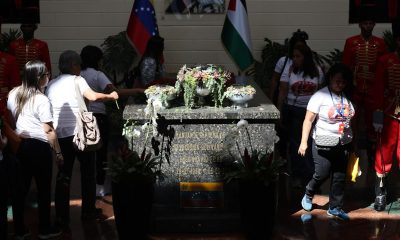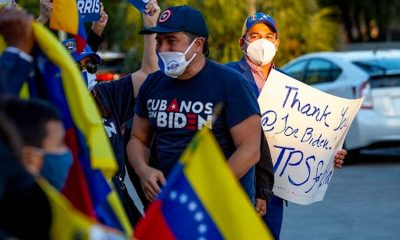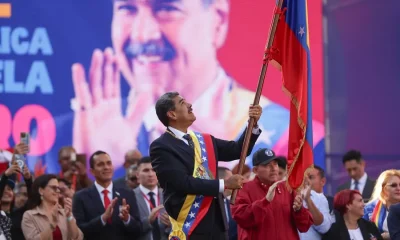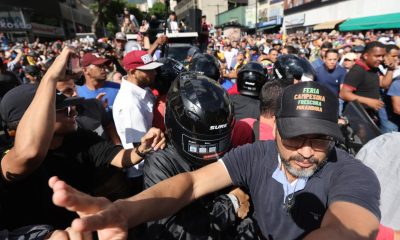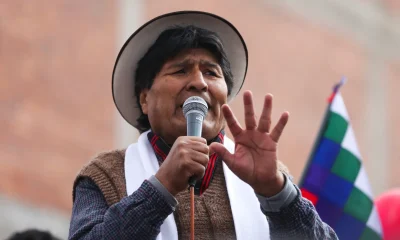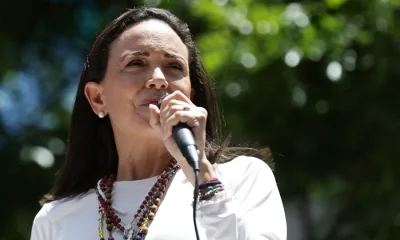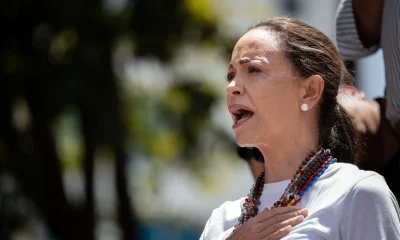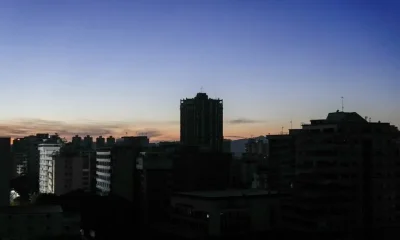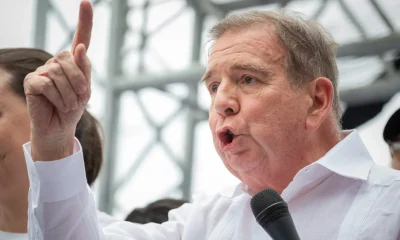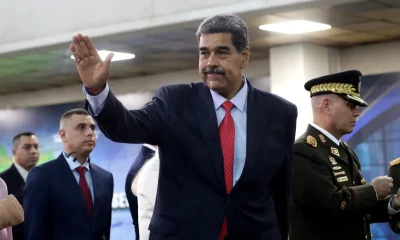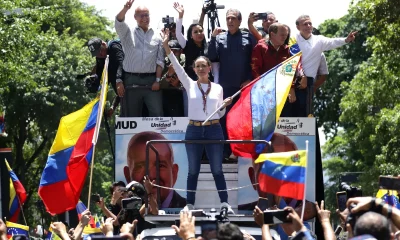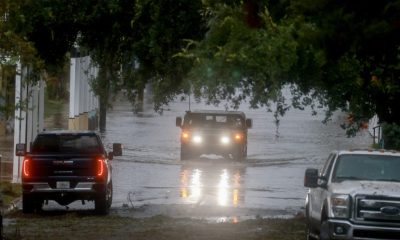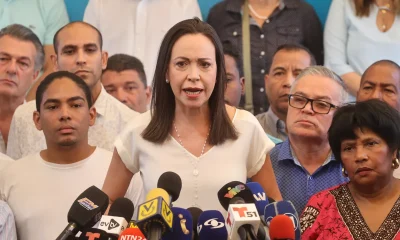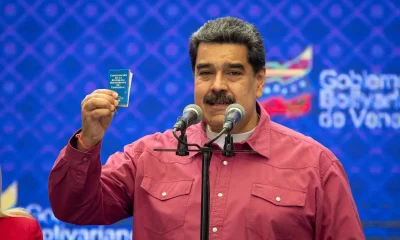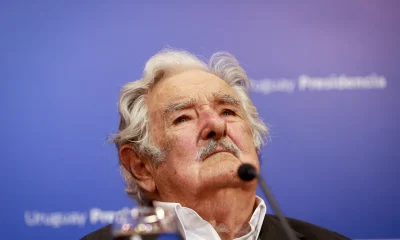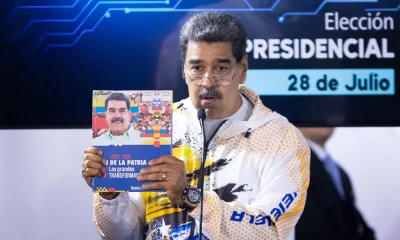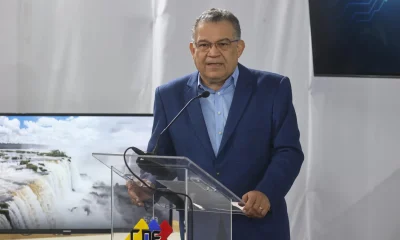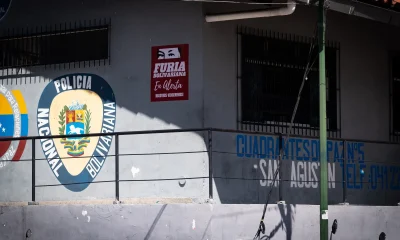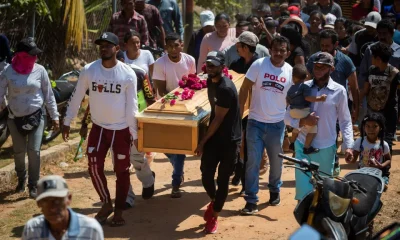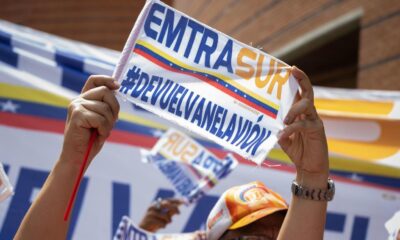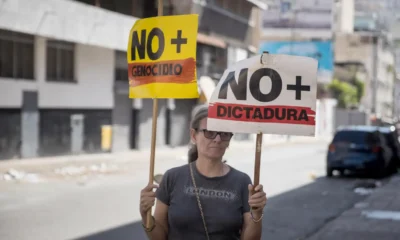International
Essequibo referendum campaign begins in Venezuela
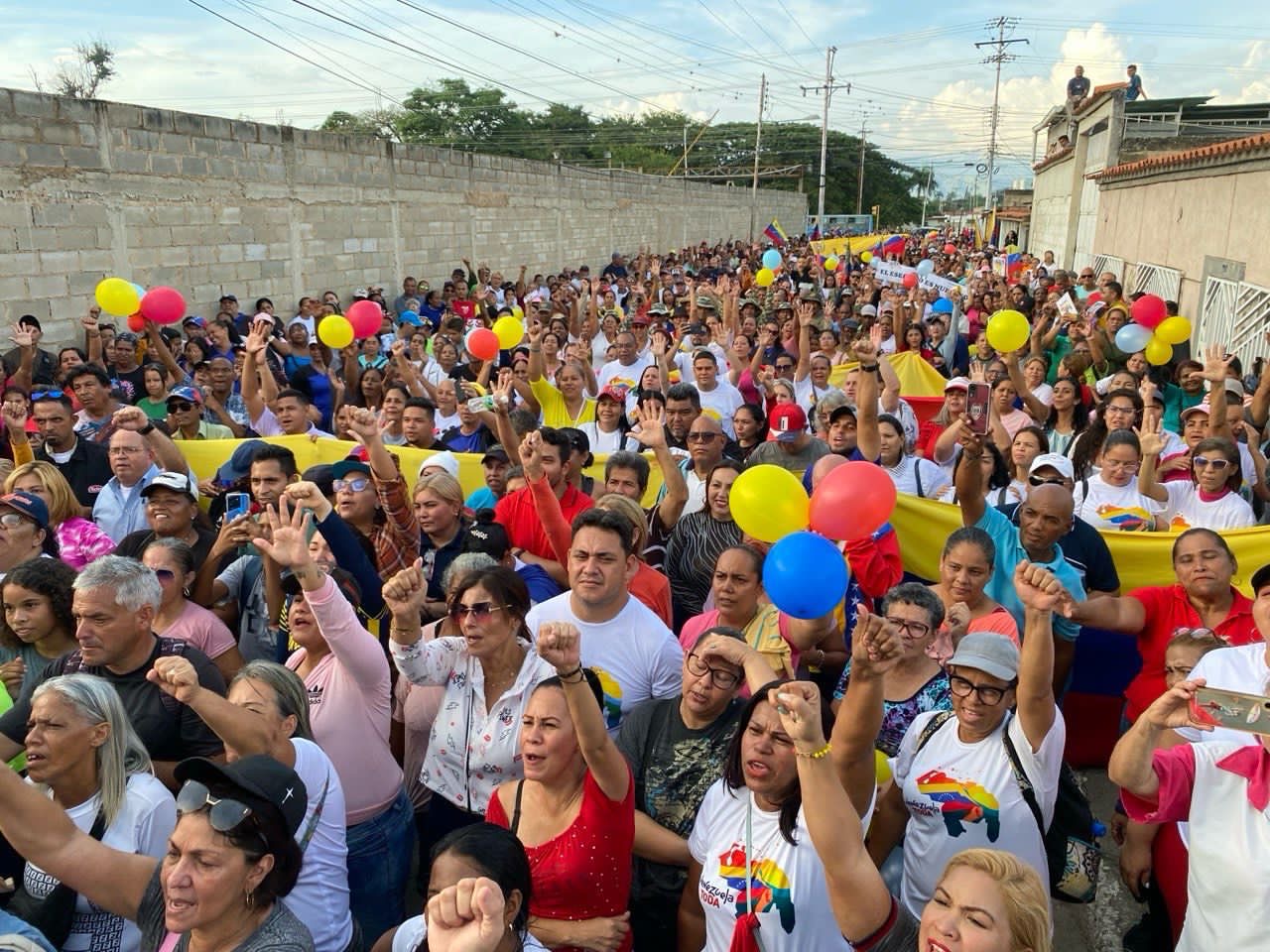
November 7 |
The electoral campaign for the consultative referendum for El Esequibo began this Monday in Venezuela by organizations with political purposes, guilds, unions, universities, civil society, the Popular Power and indigenous communities.
For this purpose, this weekend, the regional, municipal and parochial campaign commands were sworn in, with the objective of joining wills and calling for the unity of all the people in defense of the territory of the Guayana Esequiba.
The consultative referendum is scheduled for December 3, in which the population will have to answer five questions, as informed by the National Electoral Council (CNE).
“I keep receiving photos of the formation of the ‘All Venezuela’ Campaign Commands, throughout the national territory. I am sure it will be a campaign of national pride, of union of Venezuelans in defense of our historical rights over the Essequiba Guyana”, wrote Venezuelan President Nicolás Maduro in his account in the social network X.
Likewise, he highlighted that “there is strength in unity, therefore, Venezuelans are united for a single cause of national love: our Essequibo. On 3D we voted 5 times Yes!”.
Previously, the President responded to the statements made by the Secretary General of the Organization of American States (OAS), Luis Almagro, who expressed himself against the historical rights of Venezuela over the Essequiba Guyana.
“Outrageous is the position of this gentleman against a free and independent nation, it is obvious, he is a despicable being who serves the vile interests of the transnationals that intend to dispossess our country of a part of its territory”, said President Maduro.
Meanwhile, he assured that “the Essequibo is part of the whole of Venezuela, it belongs to us because of the heritage and historical struggle of our Liberators and Liberators”. Likewise, he reiterated the firm position of the South American nation “for Peace, dialogue, diplomacy and Justice”.
On the other hand, she acknowledged the work of the Minister of Defense, Vladimir Padrino López, and the Bolivarian National Armed Forces (Fanb) for acting quickly, denouncing and rejecting the attempt to disregard the historical right of the country.
Venezuelan Vice-President: national sovereignty resides in the people
In the afternoon hours of this day, thousands of people took to the streets throughout the Venezuelan territory as a show of support to the referendum to be held on December 3.
In Caracas (capital), the march was attended by the Venezuelan Executive Vice President, Delcy Rodríguez, who made exclusive statements to the teleSUR news multiplatform in which she highlighted Venezuela’s will to defend the Essequiba Guyana.
“From very early, six in the morning, Venezuela dawned in tricolor, all Venezuela singing our Bolivarian National Anthem. All of Venezuela began with military marches and all the states of the country joined in, marching with a single purpose: to defend our Guayana Esequiba, to tell Guyana that it acts as an employee of Exxon Mobil. To tell Almagro. To tell the United States that they are not in charge here, that the people of Venezuela are in charge here”, he emphasized.
In view of the approval by the Guyanese Parliament of a motion ordering the Venezuelan people not to carry out the referendum, Rodriguez stated that sovereignty resides in the people.
“Here the people of Venezuela rule, national sovereignty resides in the people, and on December 3 we will all go out to vote five times yes to the five questions. Five times yes for the defense of our historical morality, for the defense of our legacy of the liberator Simón Bolívar, for the defense of what belongs to us, which is Essequiba Guyana”, he stressed.
International
U.S. Senate Rejects Budget, Bringing Government Closer to Shutdown Amid DHS Dispute

The U.S. Senate voted on Thursday against a budget proposal in a move aimed at pressuring changes at the Department of Homeland Security (DHS), following the killing of two civilians during a deployment of immigration agents in Minneapolis.
All Senate Democrats and seven Republican lawmakers voted against the bill, which requires 60 votes to advance, pushing the country closer to a partial government shutdown that would cut funding for several agencies, including the Pentagon and the Department of Health.
The rejection came as Senate leaders and the White House continue negotiations on a separate funding package for DHS that would allow reforms to the agency. Proposed measures include banning Immigration and Customs Enforcement (ICE) agents from wearing face coverings and requiring them to use body-worn cameras during operations.
The vote took place just hours after President Donald Trump said he was “close” to reaching an agreement with Democrats and did not believe the federal government would face another shutdown, following last year’s record stoppage.
“I don’t think the Democrats want a shutdown either, so we’ll work in a bipartisan way to avoid it. Hopefully, there will be no government shutdown. We’re working on that right now,” Trump said during a Cabinet meeting at the White House.
International
Trump Says Putin Agreed to One-Week Halt in Attacks on Ukraine Amid Extreme Cold

U.S. President Donald Trump said on Thursday that he secured a commitment from Russian President Vladimir Putinto halt attacks against Ukraine for one week, citing extreme weather conditions affecting the region.
“Because of the extreme cold (…) I personally asked Putin not to attack Kyiv or other cities and towns for a week. And he agreed. He was very pleasant,” Trump said during a Cabinet meeting broadcast by the White House.
Trump acknowledged that several advisers had questioned the decision to make the call.
“A lot of people told me not to waste the call because they wouldn’t agree. And he accepted. And we’re very happy they did, because they don’t need missiles hitting their towns and cities,” the president said.
According to Trump, Ukrainian authorities reacted with surprise to the announcement but welcomed the possibility of a temporary ceasefire.
“It’s extraordinarily cold, record cold (…) They say they’ve never experienced cold like this,” he added.
Ukrainian President Volodymyr Zelensky later commented on the announcement, expressing hope that the agreement would be honored.
International
Storm Kristin Kills Five in Portugal, Leaves Nearly 500,000 Without Power

Storm Kristin, which battered Portugal with heavy rain and strong winds early Wednesday, has left at least five people dead, while nearly half a million residents remained without electricity as of Thursday, according to updated figures from authorities.
The revised death toll was confirmed to AFP by a spokesperson for the National Emergency and Civil Protection Authority (ANPEC). On Wednesday, the agency had reported four fatalities.
Meanwhile, E-Redes, the country’s electricity distribution network operator, said that around 450,000 customers were still without power, particularly in central Portugal.
Emergency services responded to approximately 1,500 incidents between midnight and 8:00 a.m. local time on Wednesday, as the storm caused widespread disruptions.
The Portuguese government described Kristin as an “extreme weather event” that inflicted significant damage across several regions of the country. At the height of the storm, as many as 850,000 households and institutions lost electricity during the early hours of Wednesday.
Several municipalities ordered the closure of schools, many of which remained shut on Thursday due to ongoing adverse conditions.
Ricardo Costa, regional deputy commander of the Leiria Fire Brigade, said residents continue to seek assistance as rainfall persists.
“Even though the rain is not extremely intense, it is causing extensive damage to homes,” he noted.
In Figueira da Foz, a coastal city in central Portugal, strong winds toppled a giant Ferris wheel, underscoring the severity of the storm.
-

 Central America5 days ago
Central America5 days agoGuatemala Police Arrest Prison Guard Caught in the Act of Extortion
-

 Central America5 days ago
Central America5 days agoHonduras swears in conservative president Asfura after disputed election
-

 Central America5 days ago
Central America5 days agoBukele leads public trust rankings as UCA survey highlights gains in security
-

 International4 days ago
International4 days agoFootball Fan Killed in Clashes After Colombian League Match
-

 Central America4 days ago
Central America4 days agoGuatemala President Says Starlink Terminal Found Inside Prison
-

 International5 days ago
International5 days agoDoomsday clock moves to 85 seconds before midnight amid rising global risks
-

 International5 days ago
International5 days agoWinter Storm Fern Leaves 30 Dead and Over One Million Without Power Across the U.S.
-

 International5 days ago
International5 days agoSpain approves plan to regularize up to 500,000 migrants in Historic Shift
-

 International3 days ago
International3 days agoU.S. Senate Rejects Budget, Bringing Government Closer to Shutdown Amid DHS Dispute
-

 Sin categoría5 days ago
Sin categoría5 days agoEight Killed in Series of Armed Attacks in Ecuador’s Manabí Province
-

 International4 days ago
International4 days agoMissing Spanish Sailor Rescued After 11 Days Adrift in Mediterranean
-

 International4 days ago
International4 days agoRubio Says U.S. Could Participate in Follow-Up Russia-Ukraine Talks
-

 Sin categoría5 days ago
Sin categoría5 days agoEl Salvador Launches Fourth Year of Ocean Mission to Protect Marine Ecosystems
-

 Central America2 days ago
Central America2 days agoPanama Supreme Court Strikes Down Panama Ports Concession as Unconstitutional
-

 International3 days ago
International3 days agoStorm Kristin Kills Five in Portugal, Leaves Nearly 500,000 Without Power
-

 Central America2 days ago
Central America2 days agoU.S. and Guatemala Sign Trade Deal Granting Zero Tariffs to Most Exports
-

 International3 days ago
International3 days agoTrump Says Putin Agreed to One-Week Halt in Attacks on Ukraine Amid Extreme Cold
-

 International3 days ago
International3 days agoMan Arrested After Vehicle Crashes Into Jewish Institution in Brooklyn





























